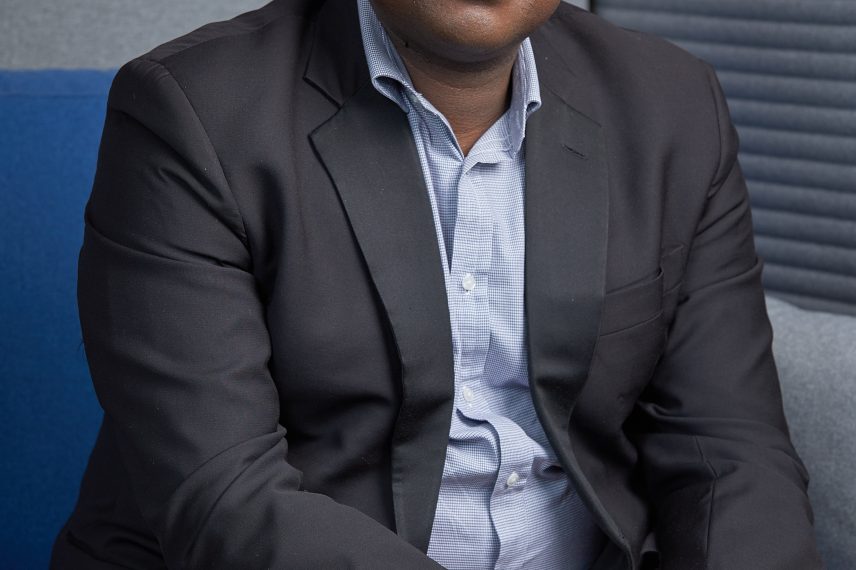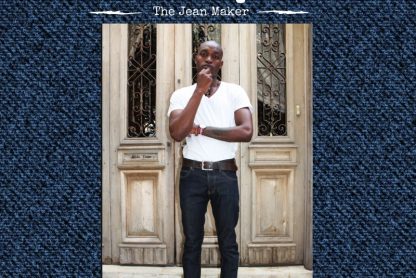Co-founder and CEO of Yalu Financial Services Nkazi Sokhulu shares with us about his passion for the financial services industry and his success tips
Give us a glimpse into your childhood, what were your childhood aspirations?
My parents had very specific dreams for me. My accounting-teacher father wanted me to be a chartered accountant, while my nurse mother dreamt I’d become a doctor. But any dreams of medicine died after a school work experience initiative – watching childbirth – when I realised it wasn’t for me. I ended up studying towards being a CA, but in my fourth year, I started auditing and realised I couldn’t do this for the rest of my life. The work was not exciting and, ultimately, that was going to be a large part of what I’d do as a CA.
What drew you to the financial services field?
While I was working at a management consultancy, a partner suggested I talk to a few people about the next stage of my career; one being the then CEO of Old Mutual, Ralph Mupita. I didn’t know anything about insurance or financial services in general, but Ralph seemed willing to help me find something “interesting”. I joined Old Mutual as his Executive Assistant and the journey that took me on, had me hooked on financial services ever since.
Journey us into your career after graduation, what have been some of the highlights and challenges you faced in your career?
I first spent time working in a number of countries as a management consultant at McKinsey before I joined Old Mutual. Then after my stint as Ralph’s executive assistant came to end, I worked in Old Mutual’s tied advisory distribution division. My wife and I then packed up to go and study masters’ degrees in New York for a few years and had the time of our lives. Upon returning, then I joined FNB. My career highlights so far would include being given a number of chances to do work that people my age wouldn’t normally be offered, and even when dropping the ball at times, being given another chance to rise again. Believing in what others can do and giving them a chance is now a philosophy I follow. I would say my biggest challenge has been the double-edged sword that comes with the opportunities I have received, which is fighting a perception that I’m just an “affirmative action hire”. I’m a proud product of Employment Equity laws which were designed to level the playing field to give me a chance, but it comes with people’s negative perceptions that I am not capable not because of my previous experience, but because of the way I look.
You were also the co-founder and COO of FNB Life, what sparked that idea and share with us some of the highlights of the legacy you left at FNB?
At the time, Jacques Celliers had just taken over FNB from Michael Jordaan and had the idea that FNB and the FirstRand group should obtain a life insurance licence. Since I knew a little about insurance, I was tasked with obtaining it, together with a colleague who was an actuary. That began a weird and wonderful journey to starting FNB Life. It’s always hard for an individual to leave an impression on a large organisation, but I would say my biggest highlight was creating an atmosphere of fun for the staff. We had big goals to achieve and while needing people to be execution focused as key, letting people have a little fun along the way was key to those successes.
Why did you decide to venture into business?
I was inspired by how my young son understood what I do for a living, and it was not a pretty picture. That encounter led me to wanting to leave a legacy of being someone who fundamentally challenged the way financial services are delivered to the ordinary South African – this led to the formulation of Yalu. I was also inspired by some amazing young entrepreneurs in other tough industries who are also fighting to change that narrative.
Share with us, from your experience, what misconceptions many might have about starting and sustaining a business? Tell us about some of the challenges you have faced, and are perhaps facing, and how do you deal with them?
As a black entrepreneur, the biggest issue you will always have is a credibility deficit; no matter how much experience you have. You face that deficit from potential investors all the way to potential customers. But even though I was privileged enough to have been one of the two people who started a life insurance company for one of the largest banks in South Africa, investors were not convinced I had the skill and determination to start and run an insurance company.
The banks have not taken kindly to Yalu’s market entrance, and have employed all manner of questionable and sometimes unethical steps to preventing customers from choosing their own credit life insurance provider, therefore keeping them locked into their current contracts against their will.
The only way to face these challenges is to acknowledge them and take them on head-on and then persevere. When you realize that you have no choice but to overcome, you learn to never give up, but keep adjusting your approach until you succeed.
Tells us the story behind the name of your business and share with us what, your business as a credit life insurance entails; and how the consumer benefits from it.
Our name “Yalu” is short for the Zulu term isiyalu – the source of a river. Yalu was born out of our passion to nourish and bring life to the world of credit life insurance – a source of a river creates life and nourishment.
Credit life insurance (CLI) is a special type of life insurance that settles a customer’s outstanding debt should they die, become disabled or be retrenched. In South Africa, banks typically require the borrowing customer to have CLI for the duration of the debt’s term. Regulations allow for the customer to choose their own CLI provider, but in practice, customers accept their credit provider’s CLI product when the debt is granted, due to a lack of awareness of the product and the lack of freedom for them to choose their own CLI provider at point-of-sale.
Yalu’s CLI product stands out from the crowd through a number of key differentiators that include:
- premiums that decrease as the customer’s outstanding balance reduces
- a single policy that covers multiple forms of debt from multiple institutions
- customers receive 10% of their premiums back at the end of the debt’s term if they do not claim, and Yalu has automated the process of cancelling the existing competitor CLI policy
How big is your team and how is your management/ leadership style?
Our team has steadily grown and now stands at 25. My leadership style is ever-evolving, mostly to try and meet our life stage as a business. It was more inspiring the team to do the impossible when we were building the company before we launched into the market. Since launching into the market, it has become more about guiding the team to be obsessive about delivery: delivering superior customer service, delivering new and enhanced products and services and delivering results that continues to grow the company.
Give us insights into how the debt system works, considering the fact that many people rely on credit to get by. Share with us how what repo rates are and why borrowing money is so expensive?
I am no expert on the consumer lending market, bankers who have run large lending divisions would be more appropriate to speaking authoritatively on this question. For me, debt is necessary and can be an important “asset” to use when it’s been directed in the right ways: both personally and in business. Having a repo rate in a country is a way for regulators to standardize lending rates that banks can charge to customers, otherwise, lenders would indiscriminately charge customers interest rates at random. The interest rate that determines how expensive that debt is, is directly linked to the type of debt being advanced: non-asset based debt with no monthly payments being the most expensive on one end of the spectrum, and asset-based debt with specified monthly payments being the cheapest on the other end of the spectrum. One has to consider what type of debt they need carefully as it’s priced according to the risk that it carries for giving it to you.
Do you have a mentor and what role did they play in your success story?
Unlike many of my friends, I don’t have a specific mentor. Instead, I have individuals who’ve shown a keen interest in my career at pivotal times and helped me immensely.
How do you define success and do you feel you have reached it?
Success for me is as simple as defining a goal at first, and then working towards achieving that goal. I apply the same logic in my personal life and in my work life. Rather than thinking about one moment in my life when I believe I have succeeded, I view success as achieving smaller, bite-sized goals that I set for myself and the business. The hardest thing is I find is being satisfied when those goals have been achieved, so what keeps me grounded and satisfied in those moments is having people close to me who I am accountable to who remind me of the journey to that success.
Lastly, what are your success tips to young people?
I don’t believe anyone can do this tough journey alone, so my advice would be for entrepreneurs to find two other fellow entrepreneurs that they can lean on for advice and connections. These should not be people you see in passing, but people one invests time to build a trusting relationship with.











